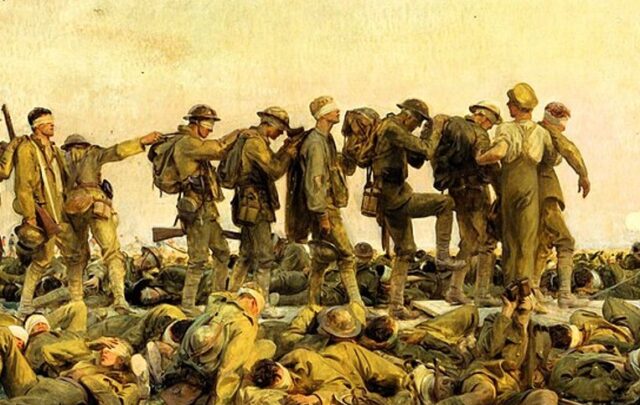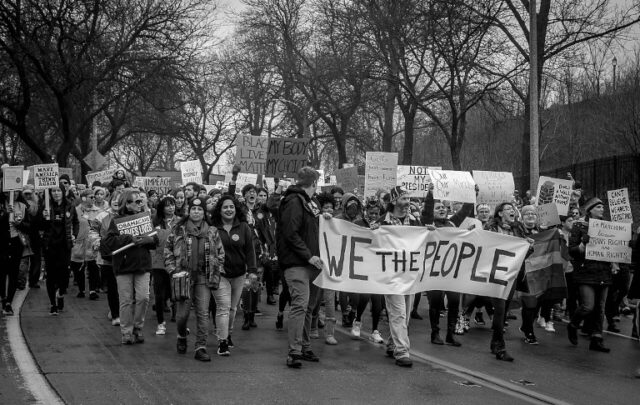As a member of Transition City Lancaster I’ve sometimes thought provocatively of starting a Politics Group. Such a proposal wouldn’t find Steering Group agreement, of course, because Transition is non-political. But in the course of making our 2030 vision of a peaceful post-oil world a reality can we avoid politics? I think not. So when active TCL member Caroline Jackson, in her Transition determination, joined the Green Party, campaigned and won election to the City Council it prompted me to reflect further on a movement trying to side step the contest of politics.
 I wish it was true that we could somehow self-organise our way through change, allowing those who are political and those who think they are not to each do their bit for the good of all. Unfortunately, this experiment tried over the last half century has failed. There is no virtue in the voluntary sacrifice of power. It just makes life more difficult and dangerous for those who remain politically active. Corporate and/or hereditary power is an elite preserve. For the rest of us safety lies in numbers – democracy! If the Transition Movement fosters ideas that undermine those numbers then ‘transition’ will move in a direction that most of us (I hope) do not want to see – transition further to the Right. Before BNP popularity was absorbed by UKIP the far right was very enthusiastic about the need for relocalisation and used transition and peak oil to give political thrust to its own purposes. If the Transition Movement does not get political on its own terms others will be more than happy to step in with theirs.
I wish it was true that we could somehow self-organise our way through change, allowing those who are political and those who think they are not to each do their bit for the good of all. Unfortunately, this experiment tried over the last half century has failed. There is no virtue in the voluntary sacrifice of power. It just makes life more difficult and dangerous for those who remain politically active. Corporate and/or hereditary power is an elite preserve. For the rest of us safety lies in numbers – democracy! If the Transition Movement fosters ideas that undermine those numbers then ‘transition’ will move in a direction that most of us (I hope) do not want to see – transition further to the Right. Before BNP popularity was absorbed by UKIP the far right was very enthusiastic about the need for relocalisation and used transition and peak oil to give political thrust to its own purposes. If the Transition Movement does not get political on its own terms others will be more than happy to step in with theirs.
 Some historical perspective would help with the ‘to be or not to be’ of politics. The 1960’s Student Movement was soon met with brutal repression and turned instead to a softer target than the state. People set about changing themselves. The guiding belief was that if enough people could change then the system would inevitably change too. Thus the Commune Movement arose among disaffected and defeated former political activists. Alongside them many more joined who had no connection, experience or understanding of the authoritarian rule compelling this turn within. To later followers it just looked like fun. If it didn’t look like a dance party they weren’t interested. It was not self organised groups but the organised self interest of elites that won the 60’s revolution and continued business-as-usual politics creating an even more unequal and damaged world – the one we live in today.
Some historical perspective would help with the ‘to be or not to be’ of politics. The 1960’s Student Movement was soon met with brutal repression and turned instead to a softer target than the state. People set about changing themselves. The guiding belief was that if enough people could change then the system would inevitably change too. Thus the Commune Movement arose among disaffected and defeated former political activists. Alongside them many more joined who had no connection, experience or understanding of the authoritarian rule compelling this turn within. To later followers it just looked like fun. If it didn’t look like a dance party they weren’t interested. It was not self organised groups but the organised self interest of elites that won the 60’s revolution and continued business-as-usual politics creating an even more unequal and damaged world – the one we live in today.
 Positive thinking became the popular ideology. The despair out of which this thinking had emerged was forgotten. Like a kind of Ghost Dance movement, people desperate for hope surrendered politics and sought the power of positive thinking. A more sober spirit would have kept its eye on elite interest groups working lawfully within existing structures of power. The only challenge to those cabals comes from voiced, mobilised political consensus focused on policy. Any movement that lacks political will is easily tolerated, even welcomed by the status quo; let people exhaust their time, talent and energy on anything other than politics.
Positive thinking became the popular ideology. The despair out of which this thinking had emerged was forgotten. Like a kind of Ghost Dance movement, people desperate for hope surrendered politics and sought the power of positive thinking. A more sober spirit would have kept its eye on elite interest groups working lawfully within existing structures of power. The only challenge to those cabals comes from voiced, mobilised political consensus focused on policy. Any movement that lacks political will is easily tolerated, even welcomed by the status quo; let people exhaust their time, talent and energy on anything other than politics.
At a local and national level the question of Transition/politics matters because one piece of legislation has the power to counter the good intentions of a million people doing good and kindly acts. Turning off the tap is preferable to constantly mopping up. And the Transition Movement is in danger of becoming handmaid to elite power, duly mopping up the mess left by cuts to welfare and public services. The Green Party is the only political and parliamentary organisation that gives radical voice to social justice and ecological sanity. Being political isn’t about ‘party politics’ – that common putdown by the confused and disingenuous – it’s about policies. And thanks to the hard work and foresight of the Green Party those policies are worked out and waiting to be voted for. The Transition Movement is still in its infancy. As it matures it must connect veggie boxes with ballot sheets.
Illustrations: Martin Luther King Jr(taken from thedowningstreetproject), 1968 Paris student protests(Google image – unknown), 1970s psychedelic bus(unknown)
Mark Rotherham is a member of Transition City Lancaster, an independent film maker and radio broadcaster. He created Lancaster’s own Transition film based on the launch event.























